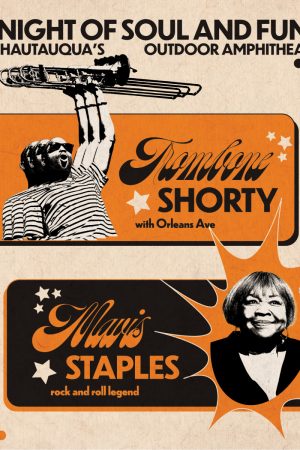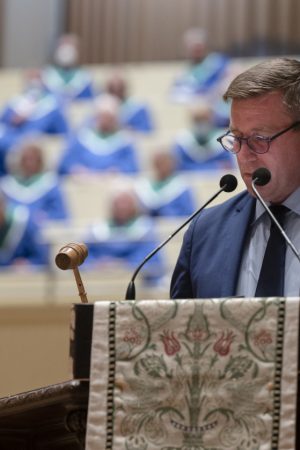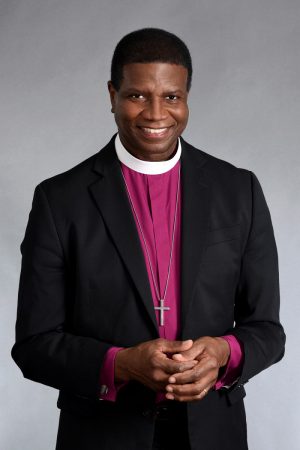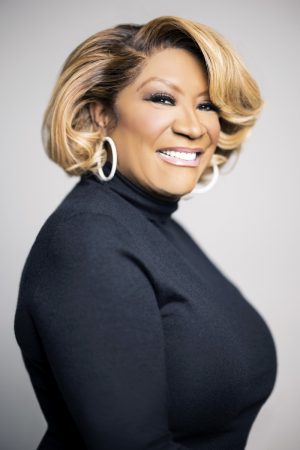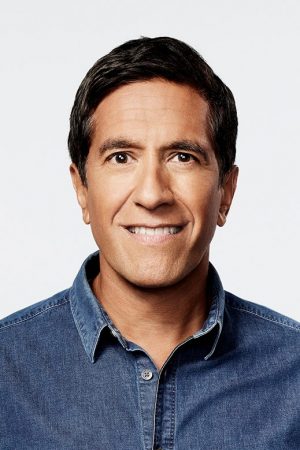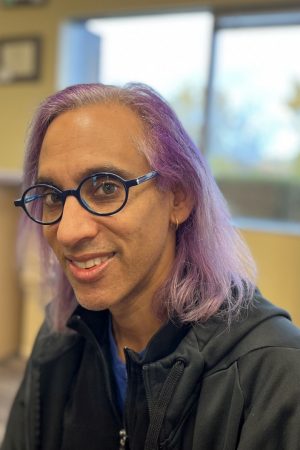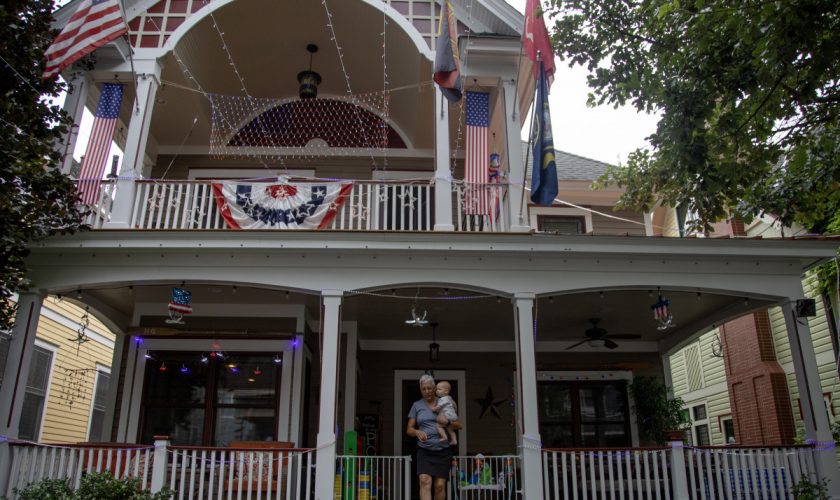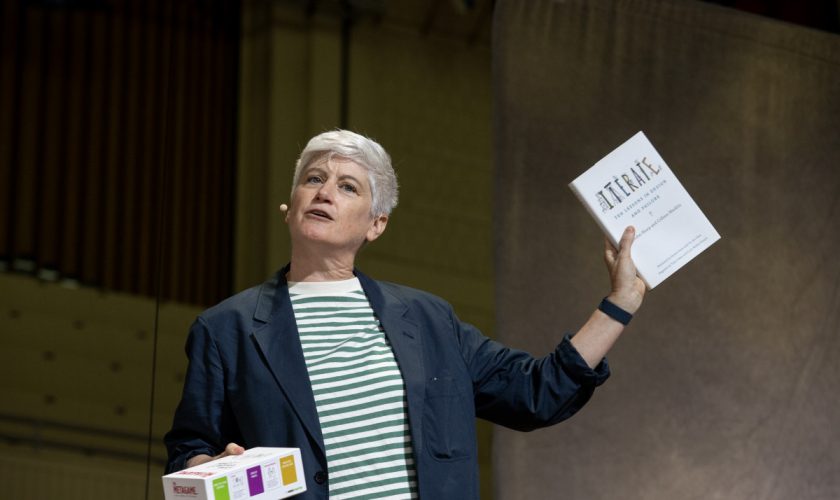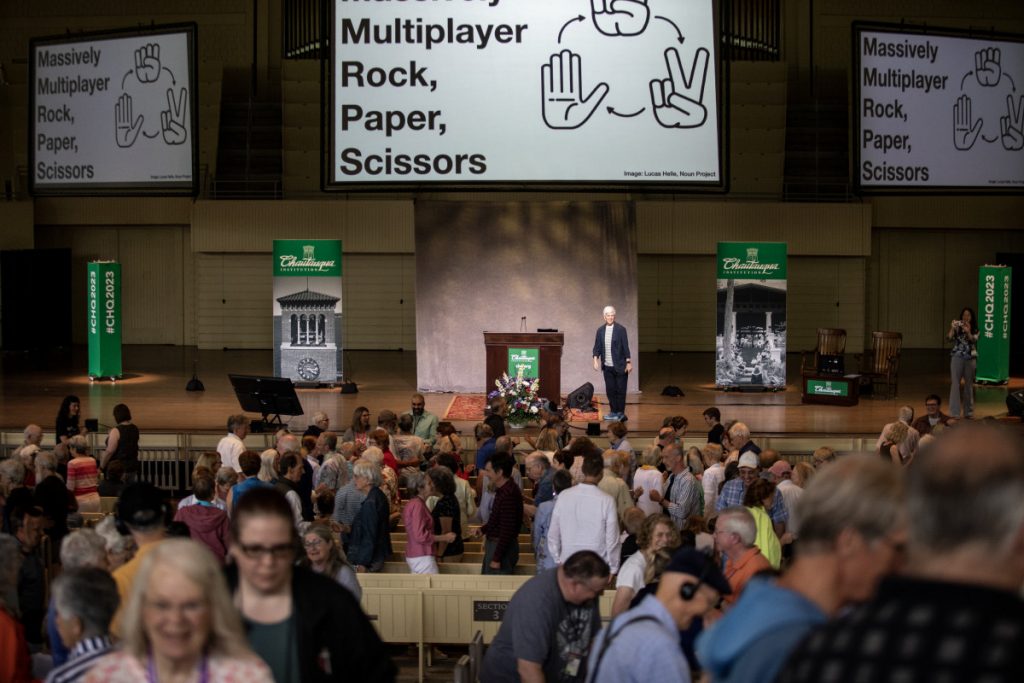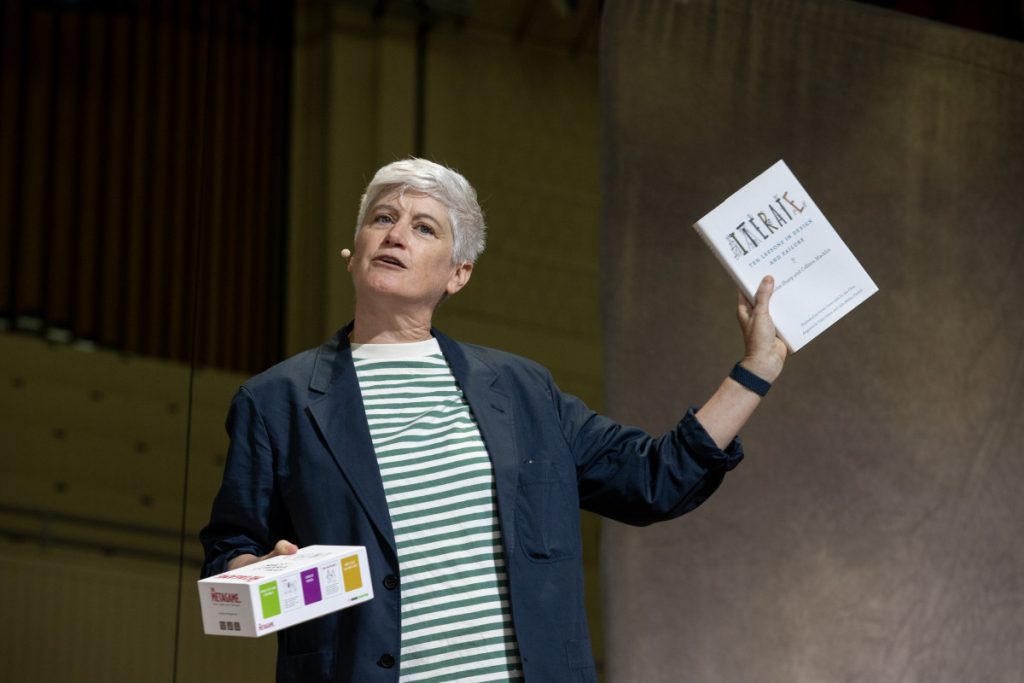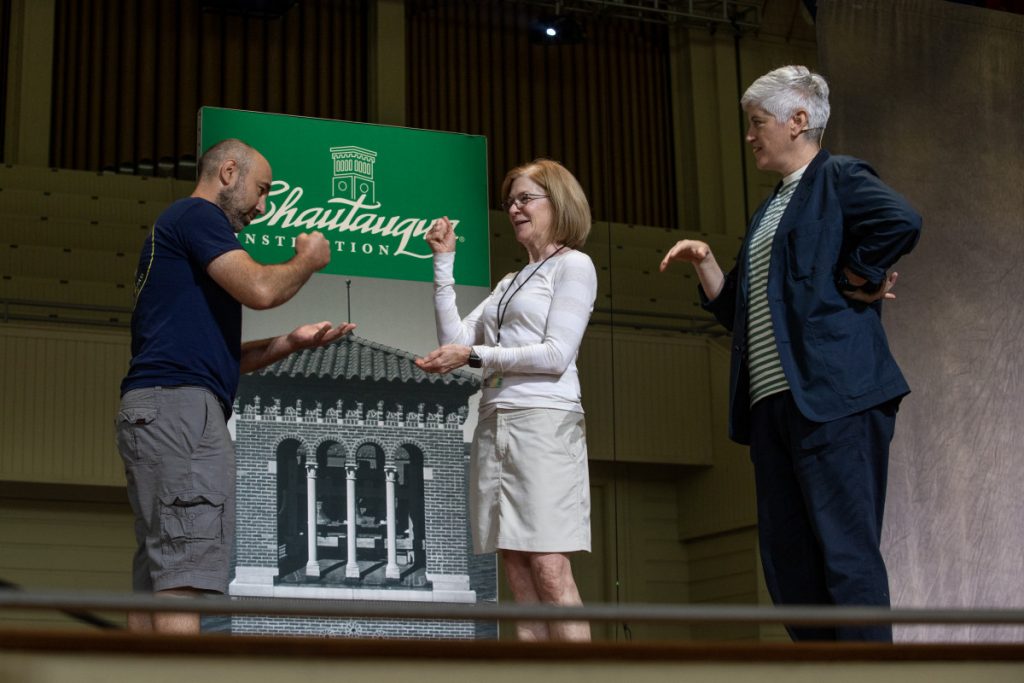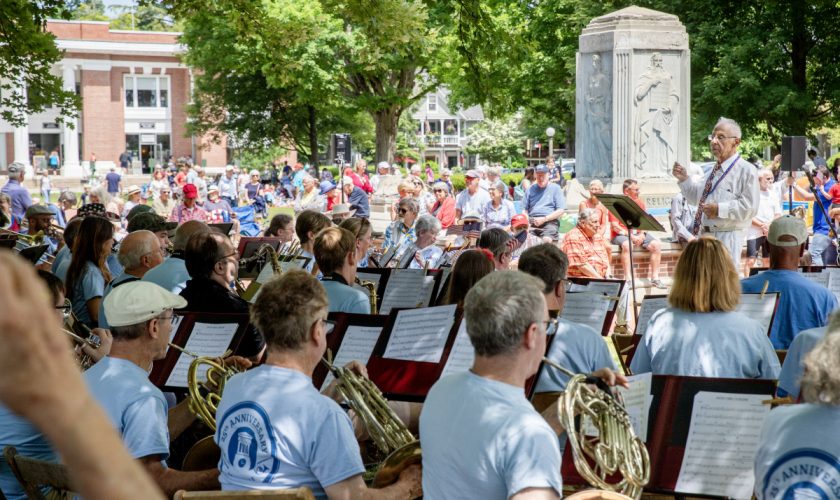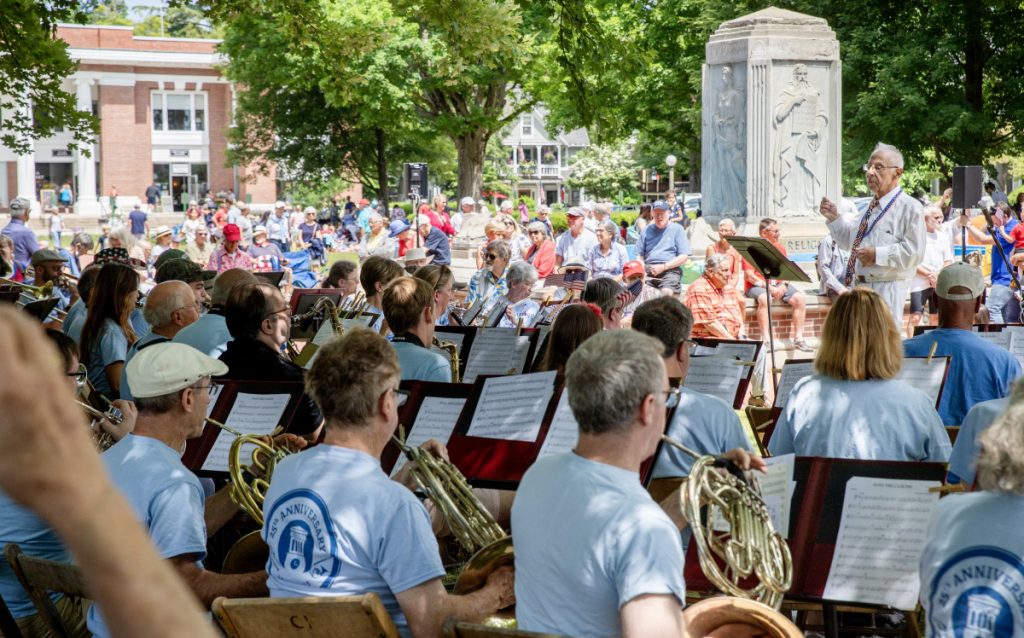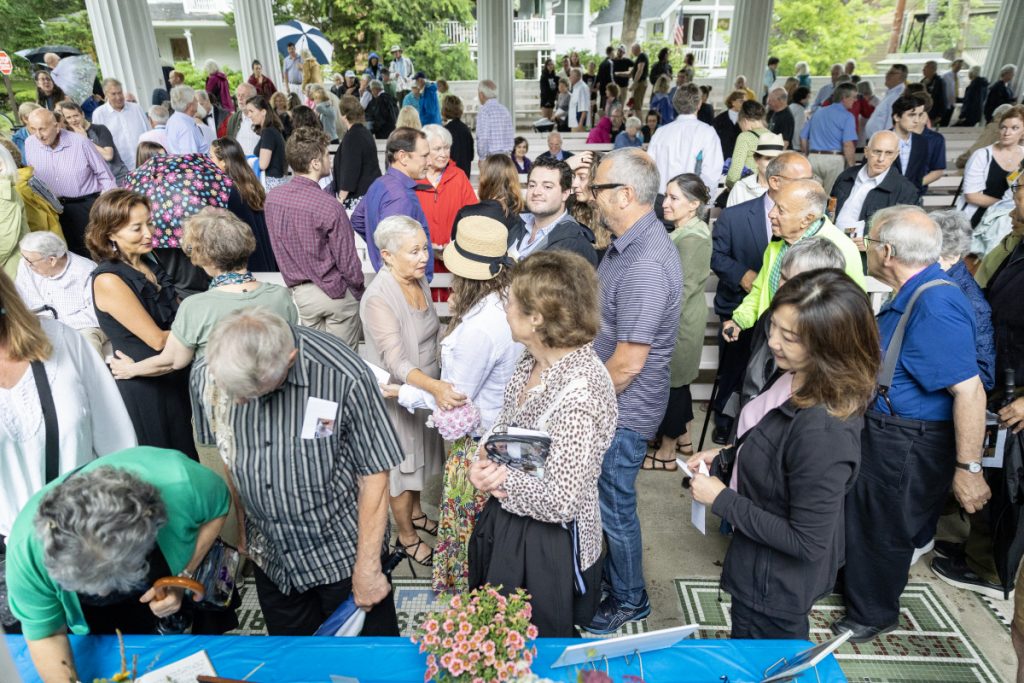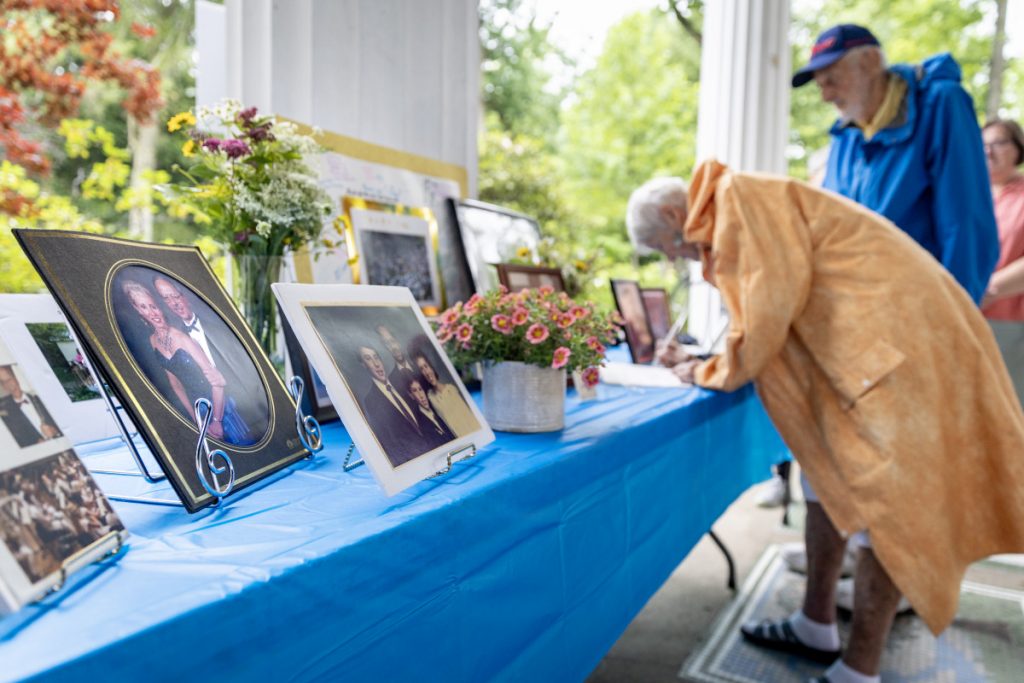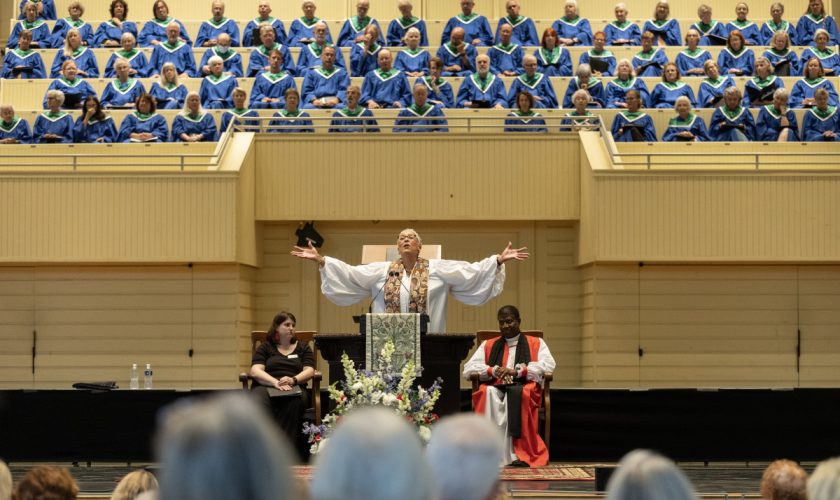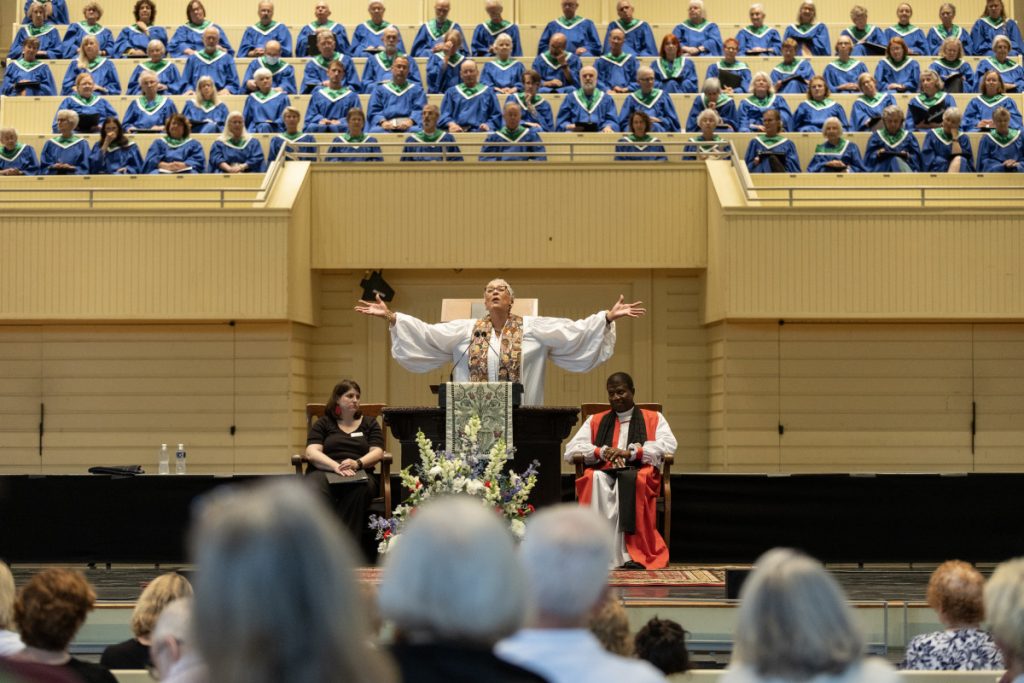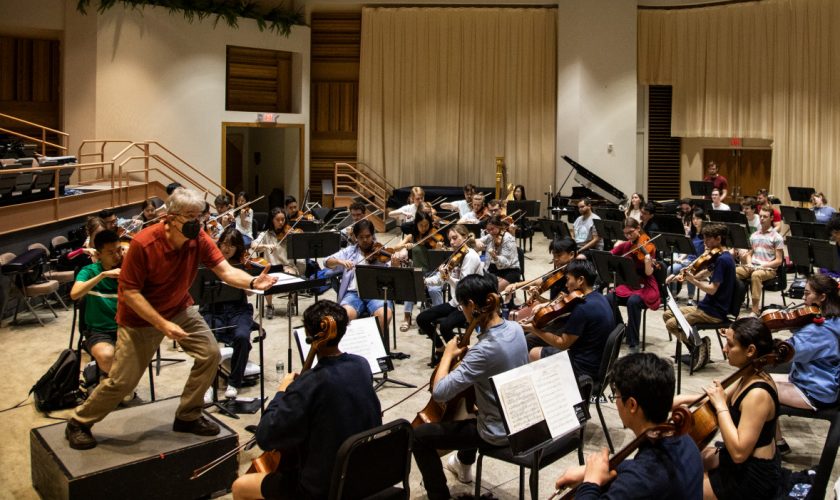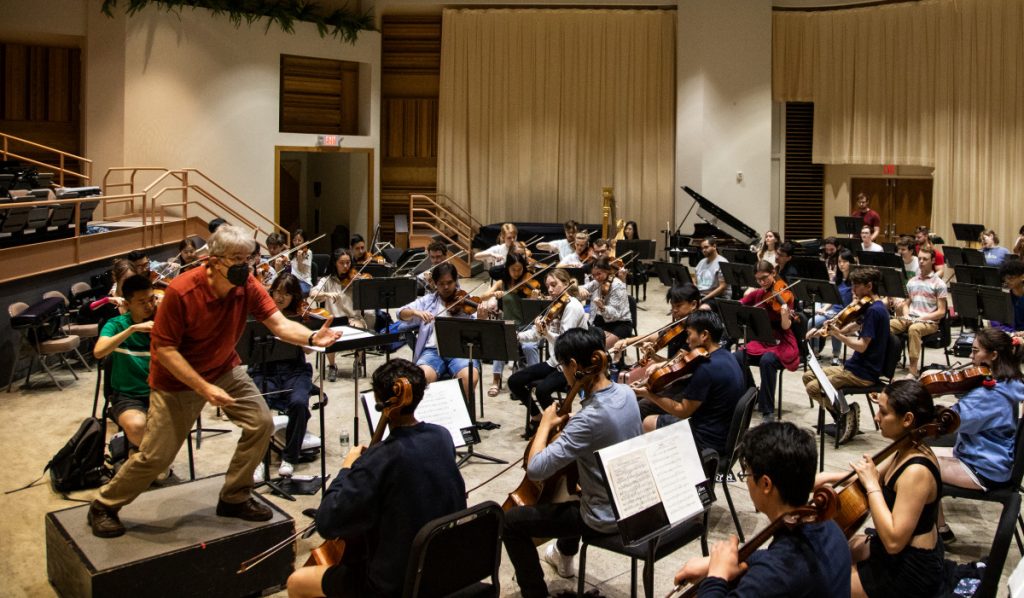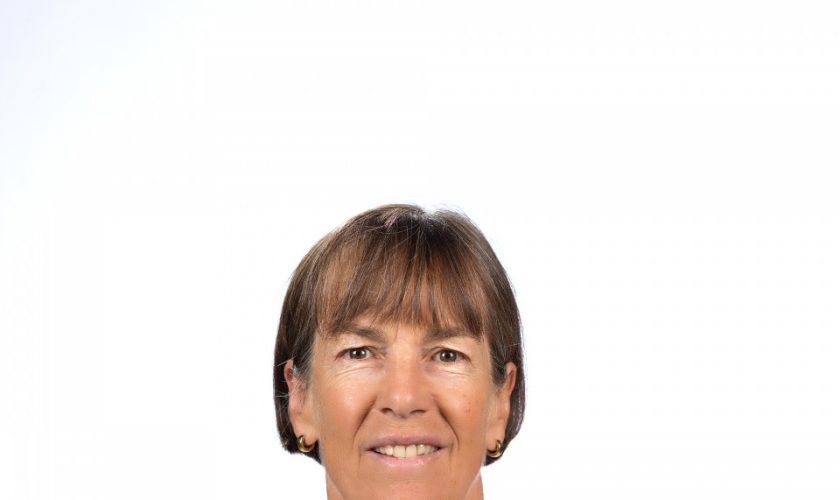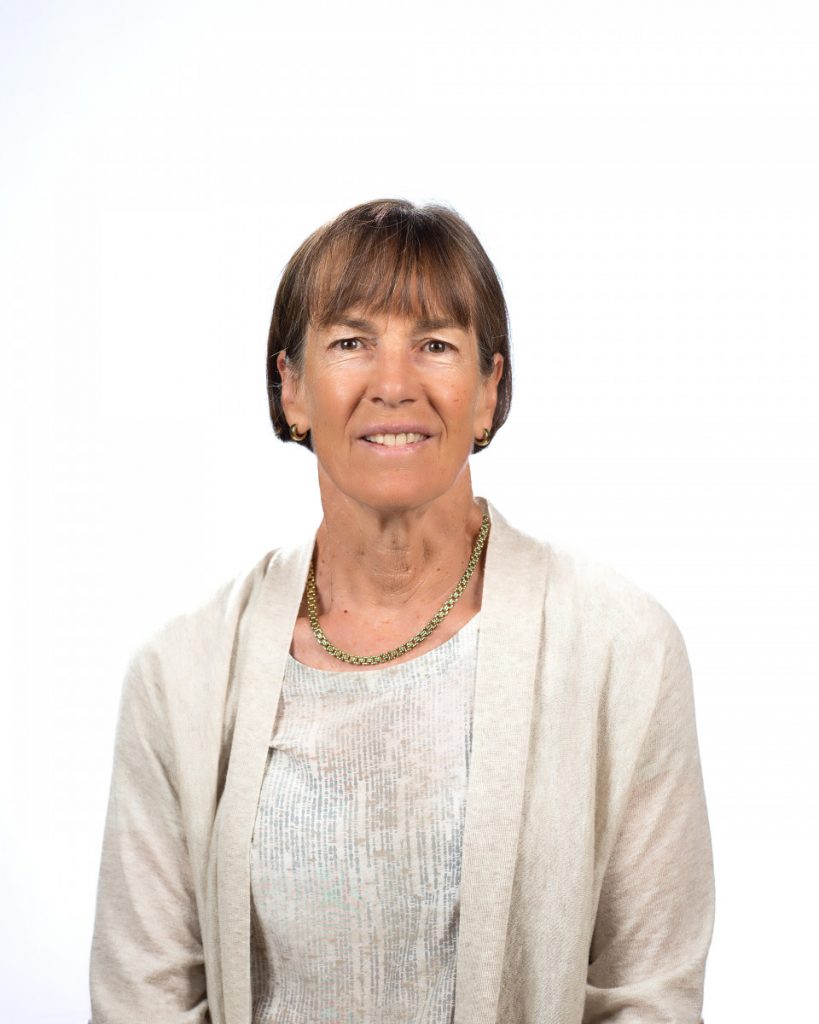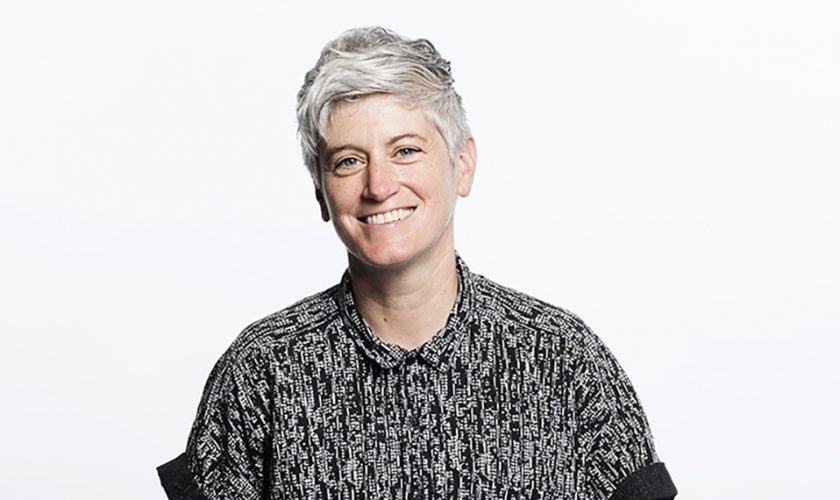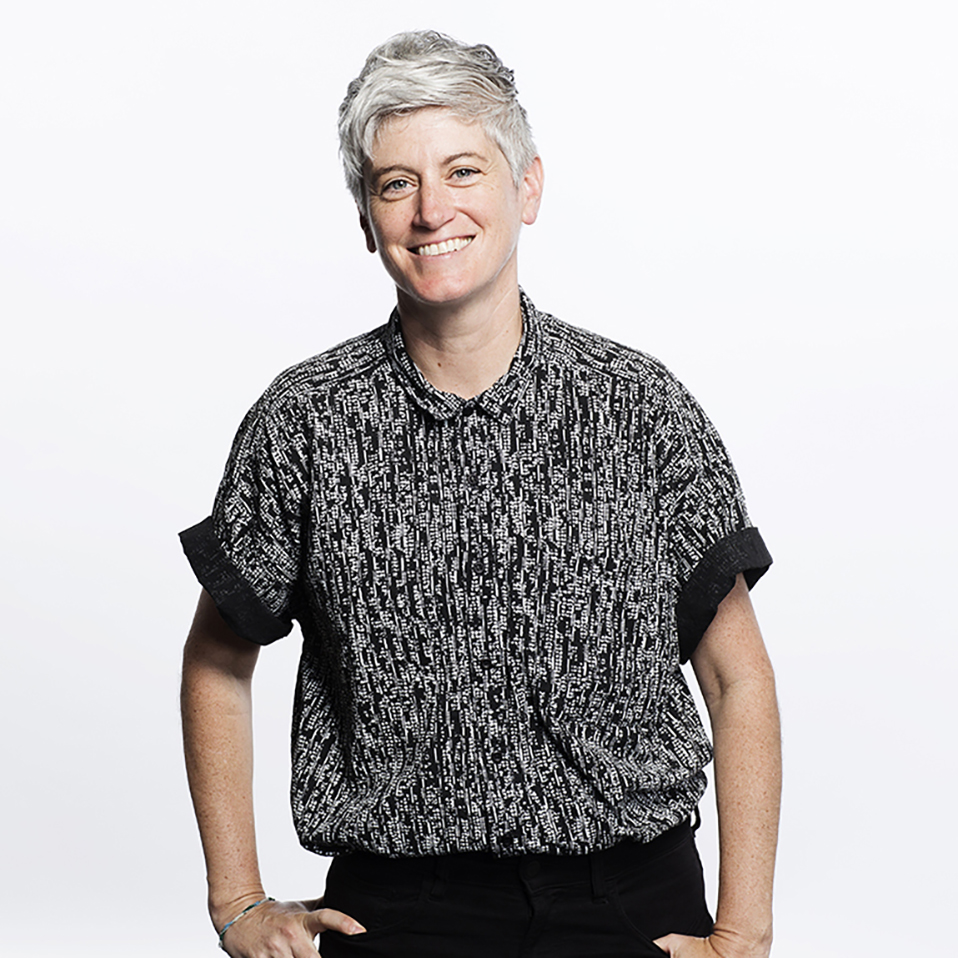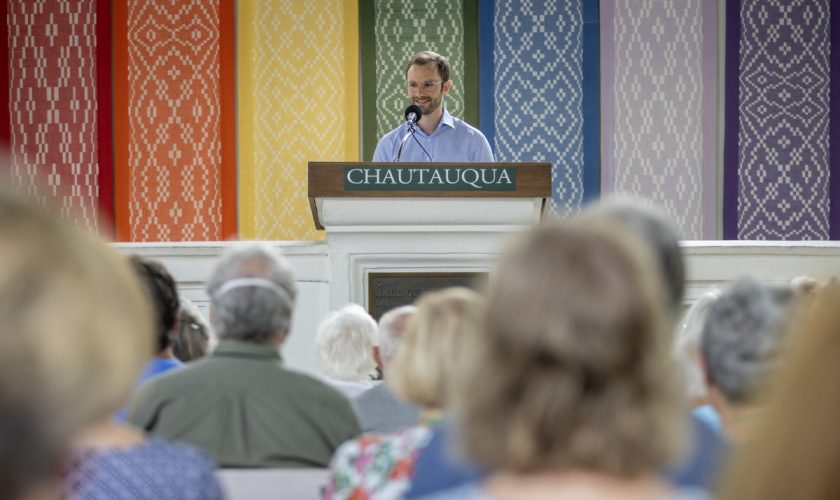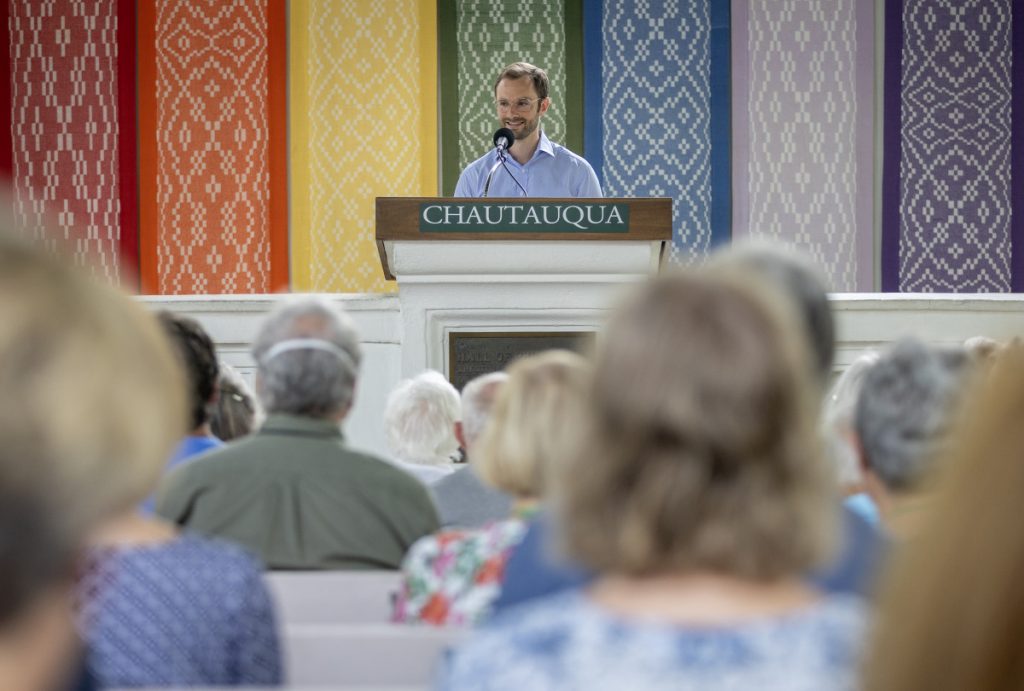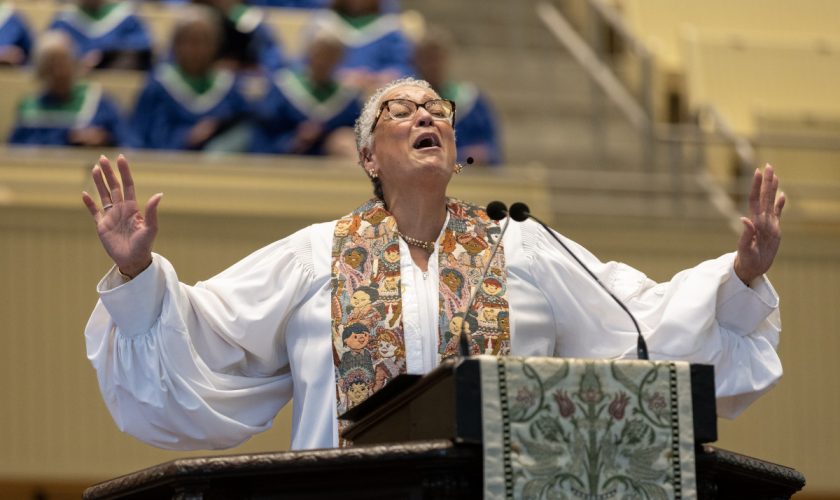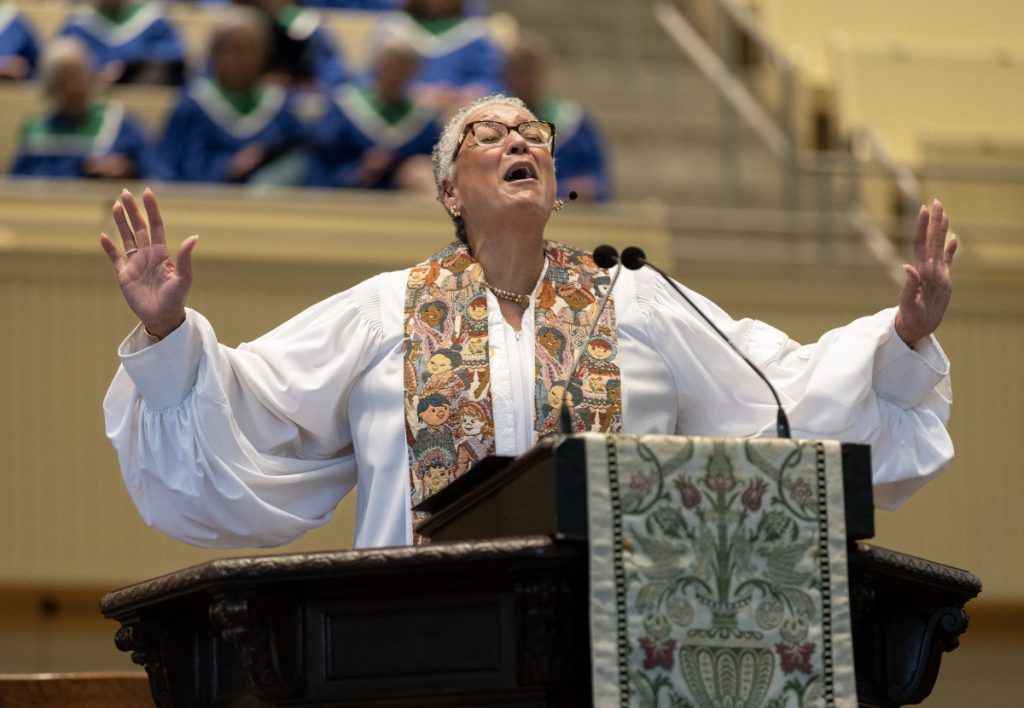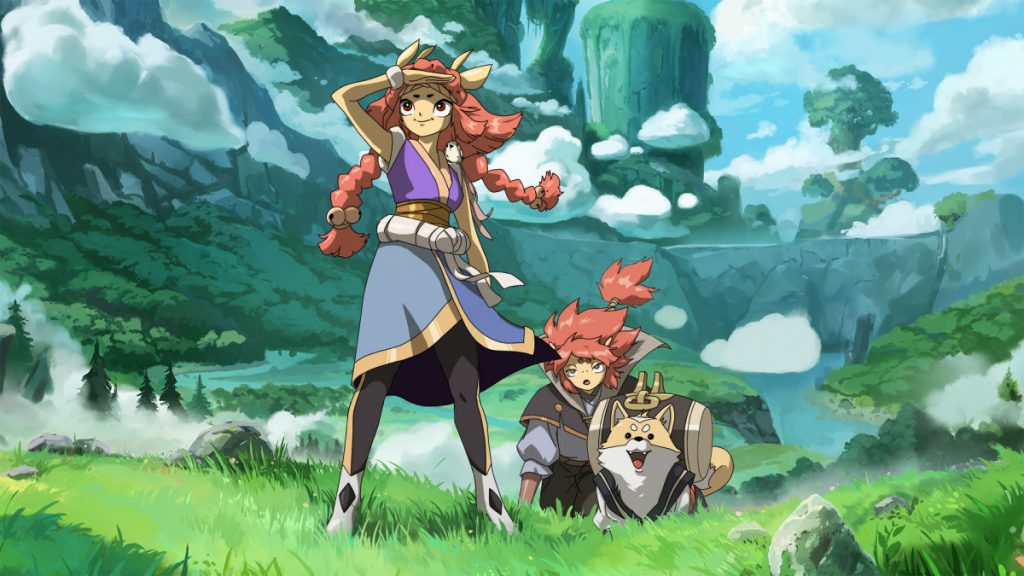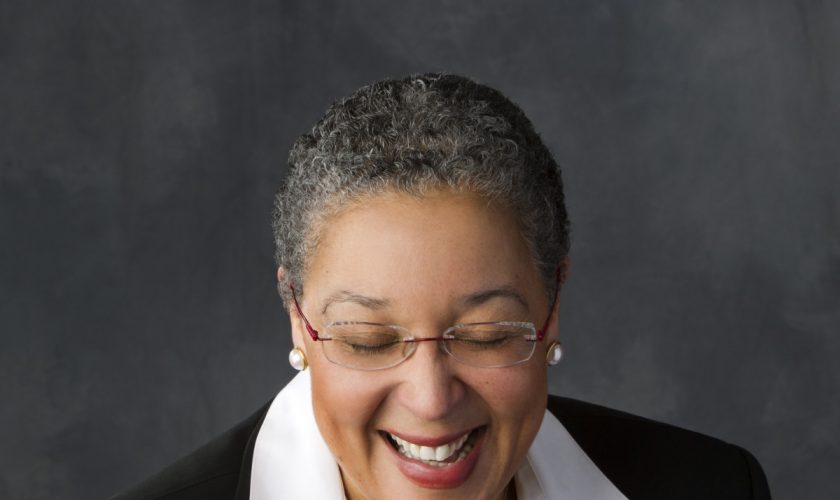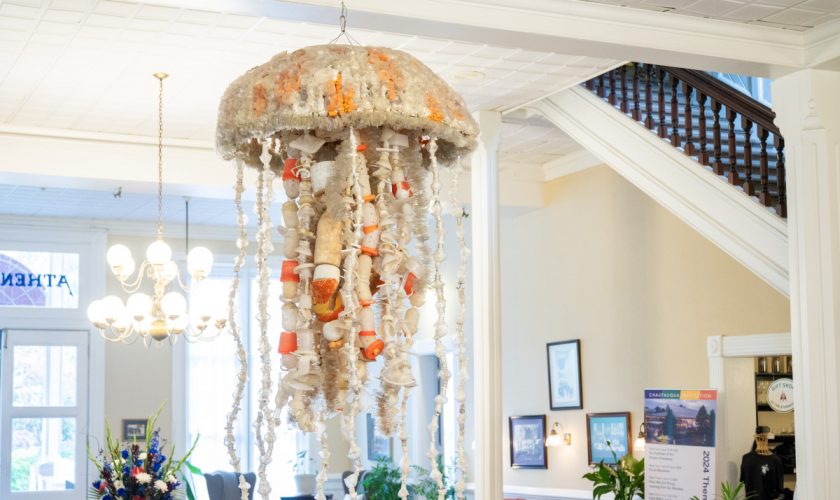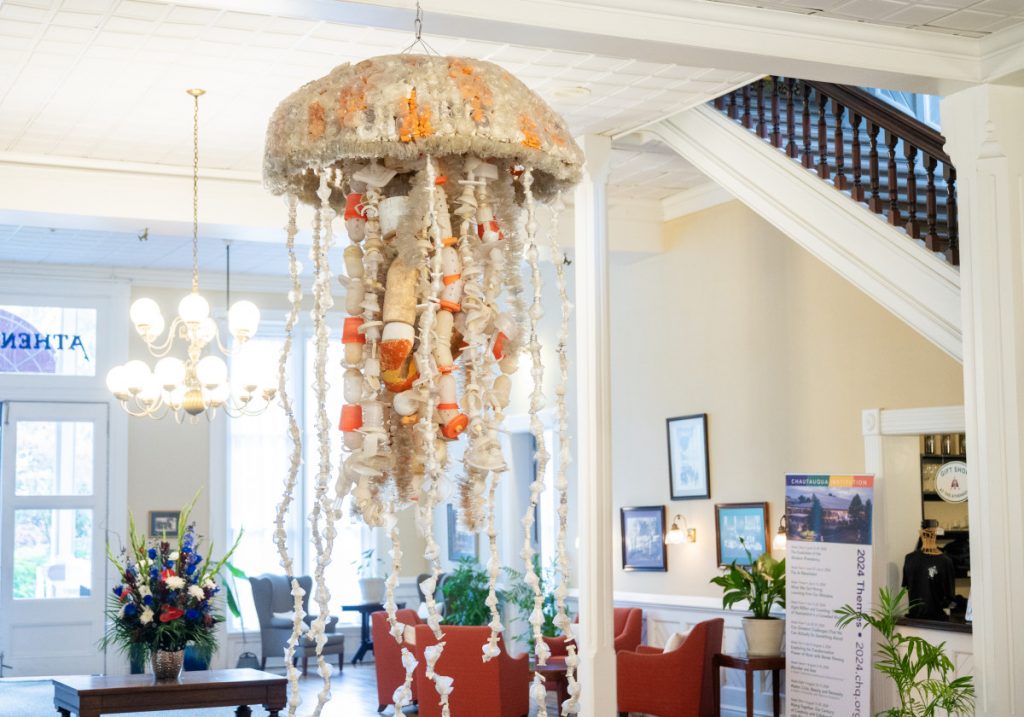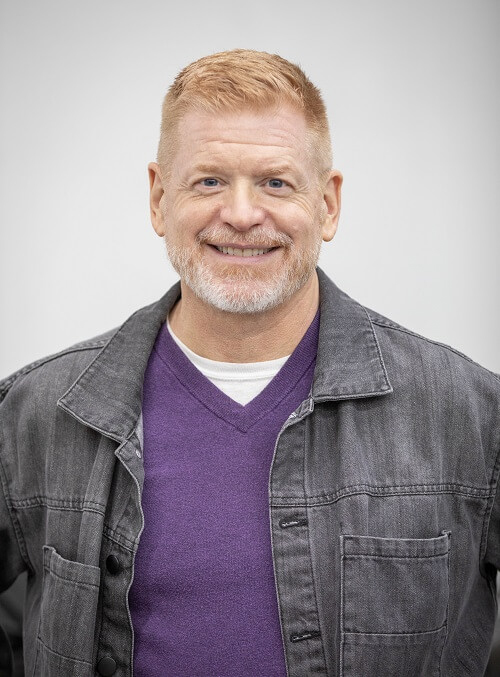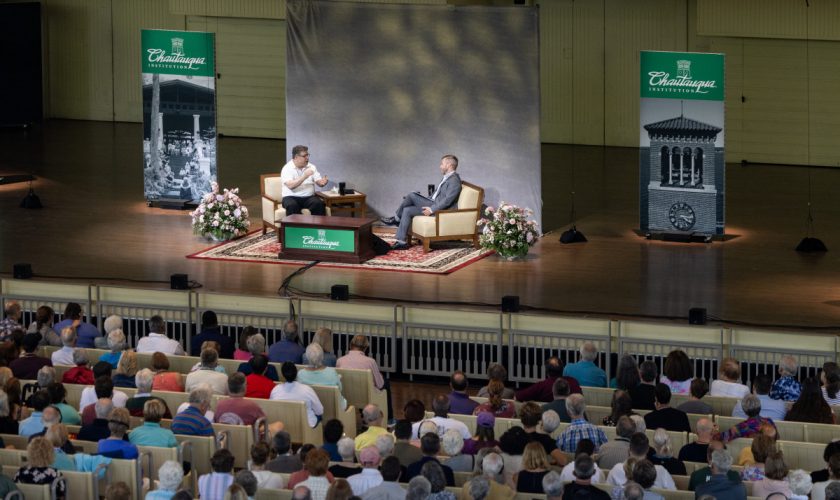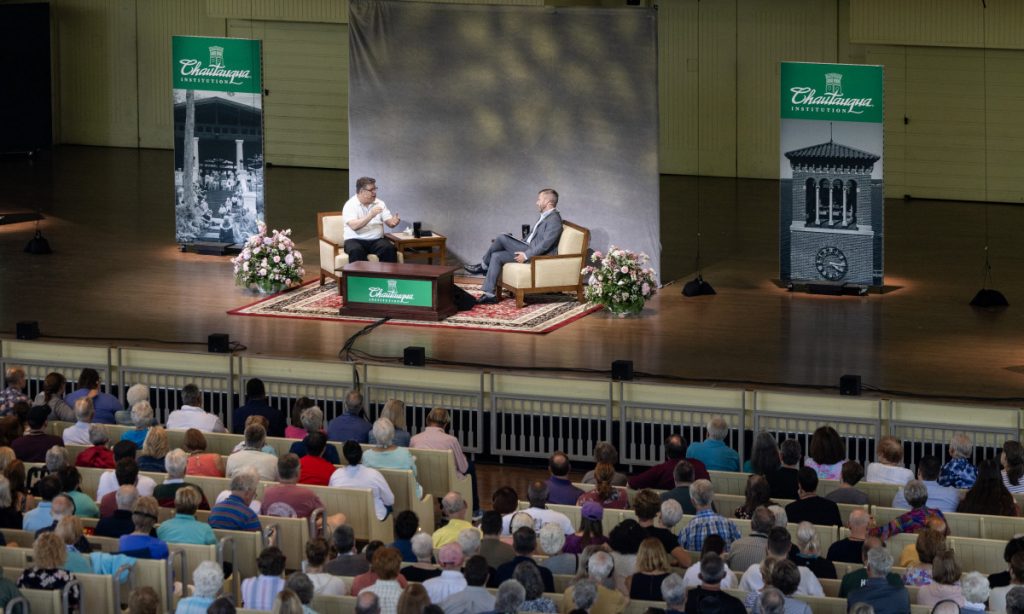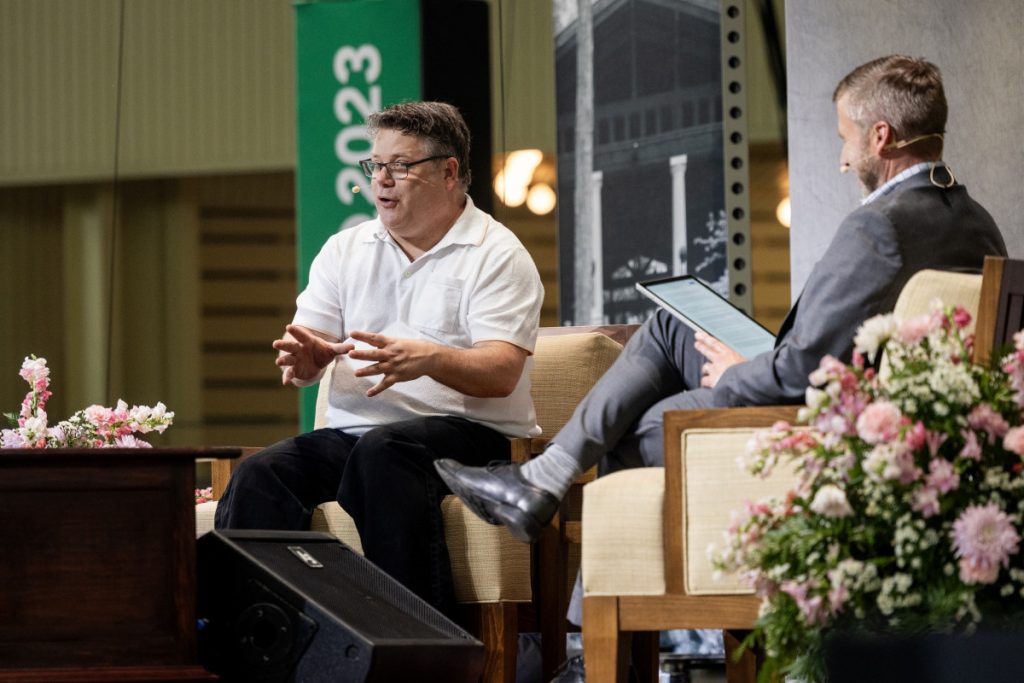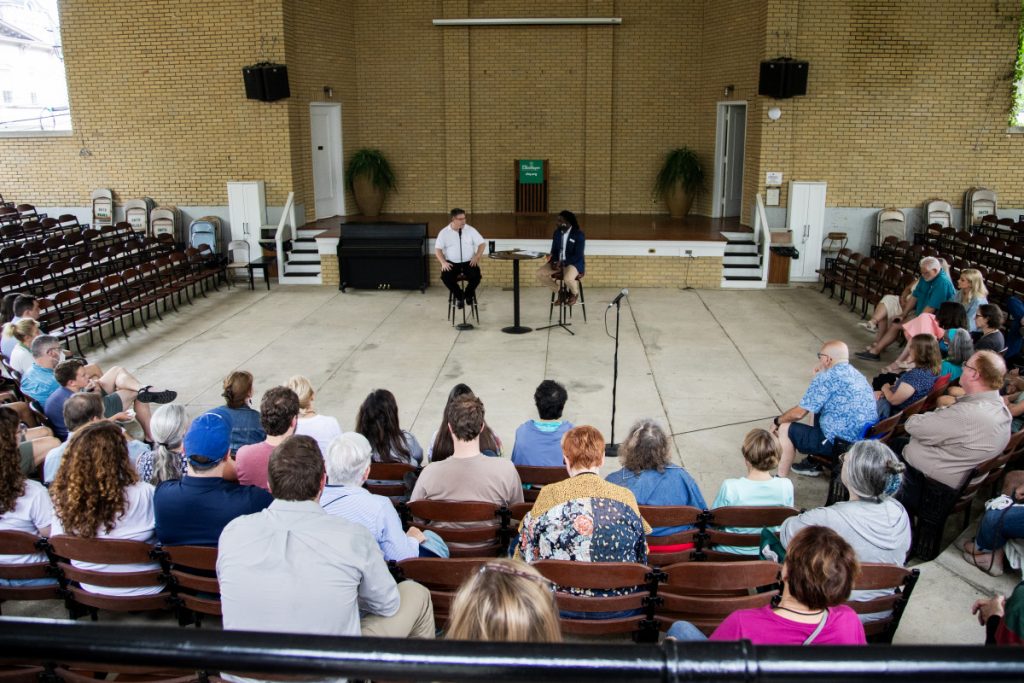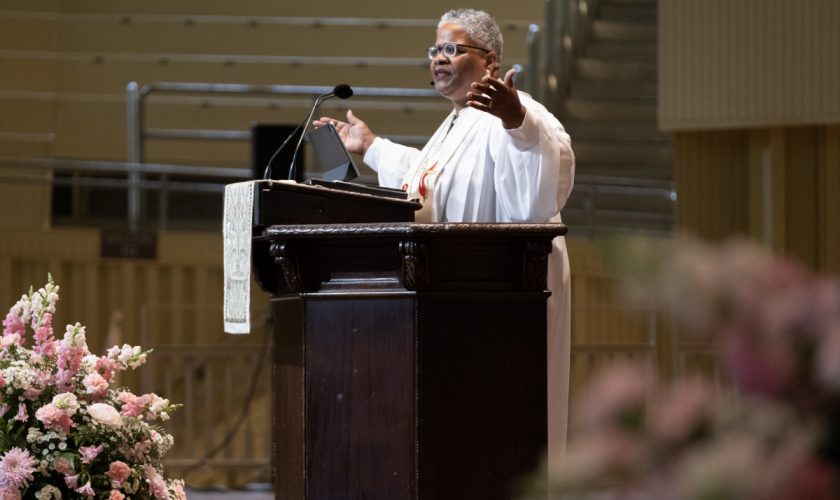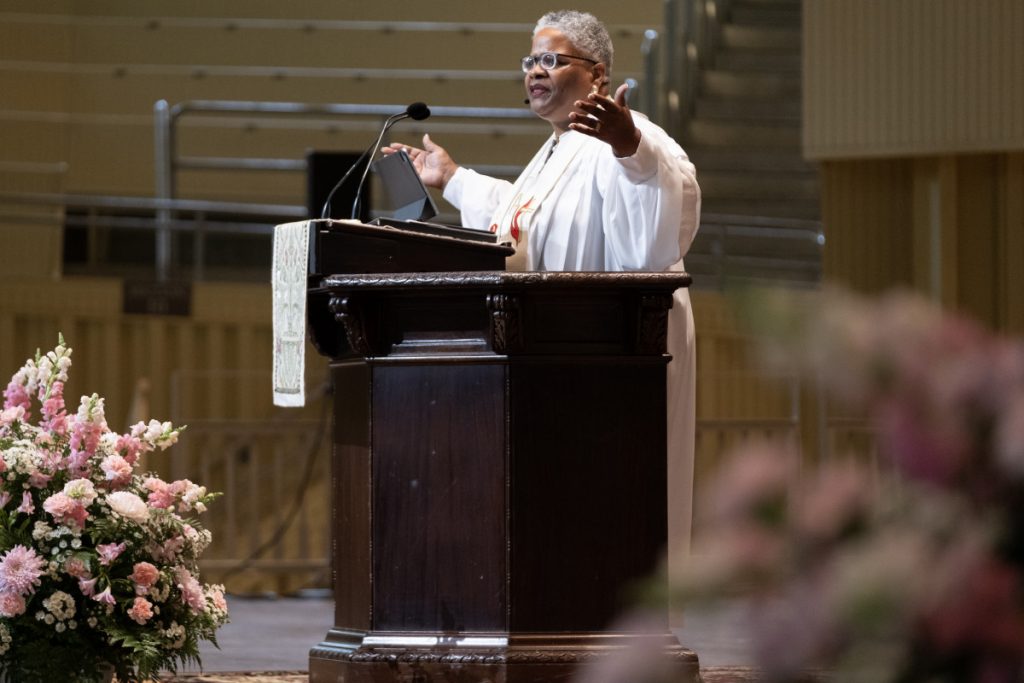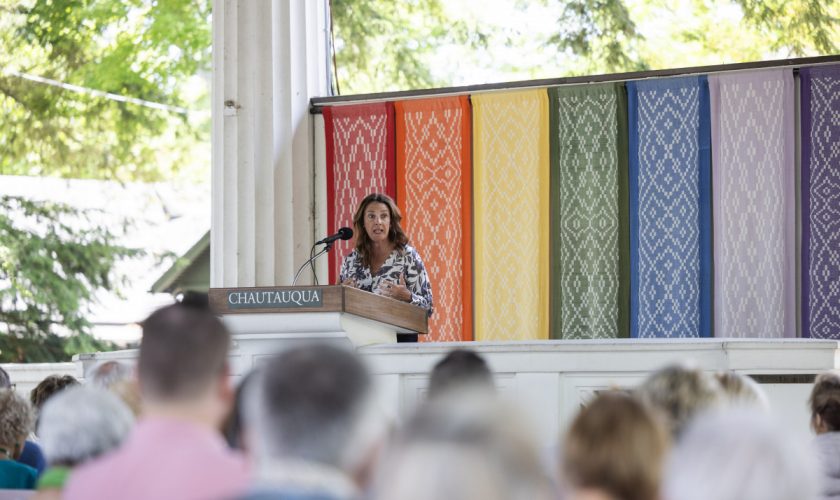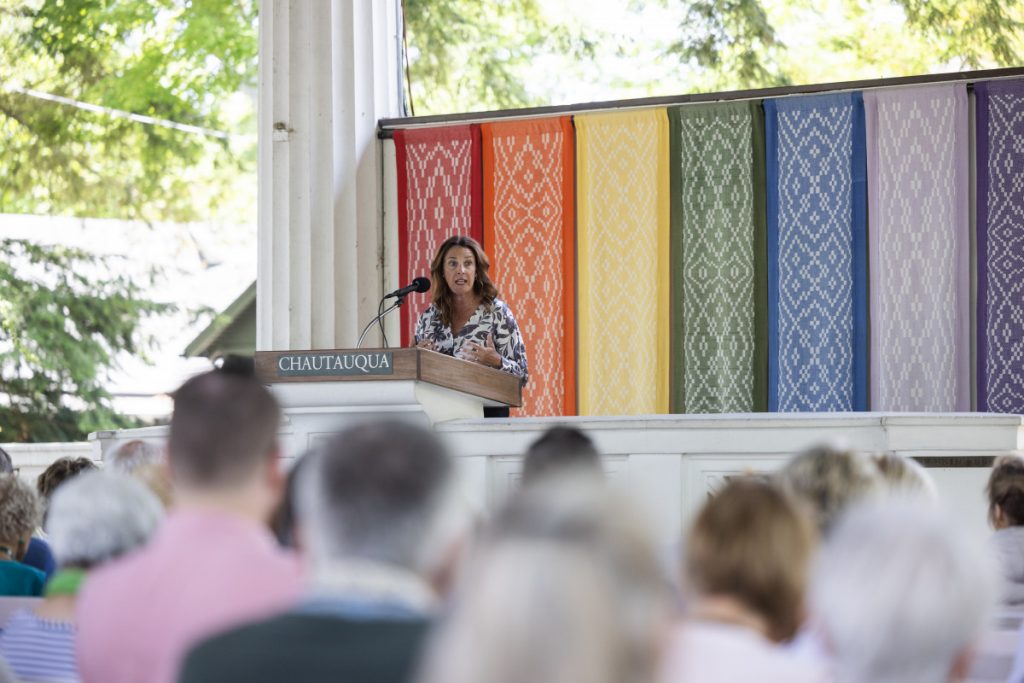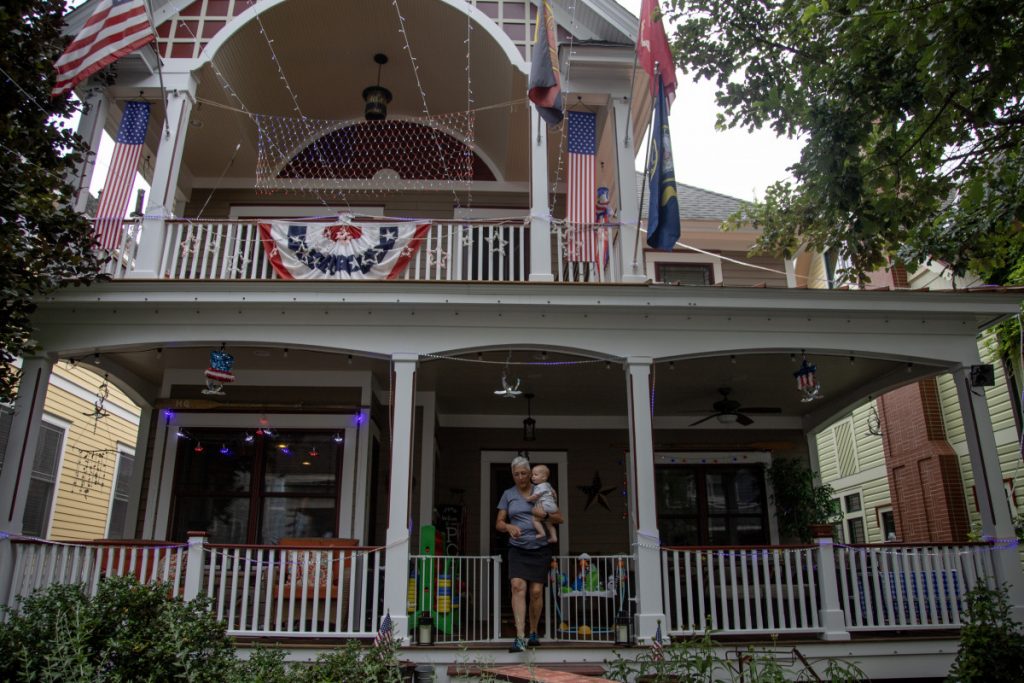
Stacey Federoff
Copy Desk Chief
A bucket and a pulley helped two families on Crescent adorn their shared Fourth of July display with its final touches — at least for this year.
Strands of red, white and blue twinkle lights now span between 58 and 61 Crescent, representing the latest addition to the two families’ homes.
“I could see as we were unraveling the bundles that we were going to have strings all over the place, so we put them in a bucket,” said John Suess, who calls 61 Cresent his Chautauqua home. From there, they passed the bucket down from the second-story porch, then across the street.
This cooperative effort represents a friendly “war” between the two families.
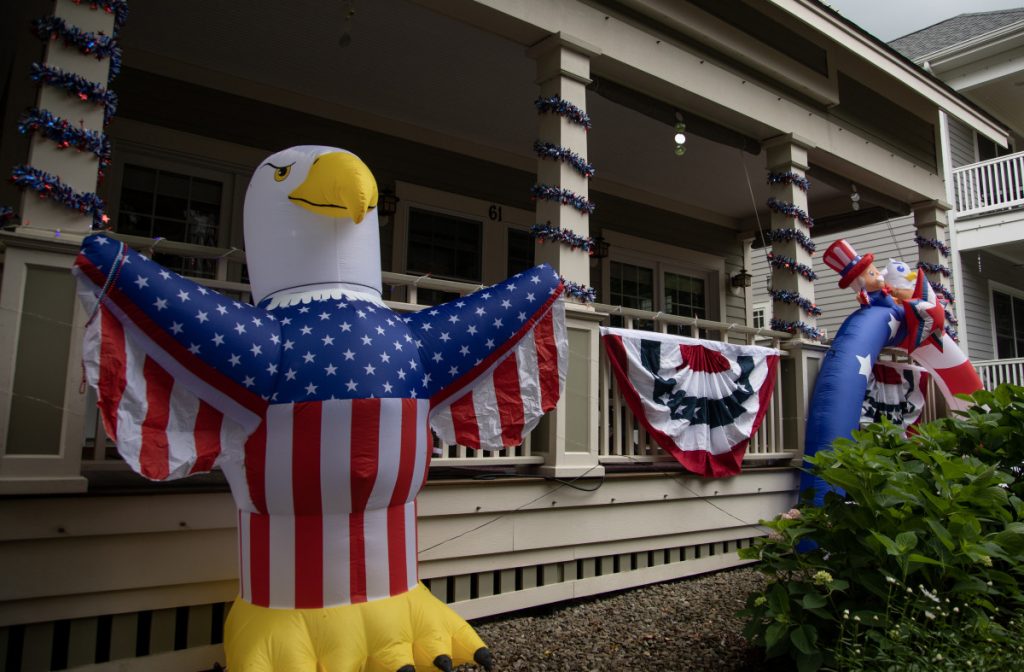
Linda Creech, of 58 Crescent, said she and her husband John, were probably the first to decorate for the Independence Day holiday three years ago.
“It started out as a friendly competition,” she said.
At first, the decor started out innocuous enough: A hanging metal star and wreath — but after some ribbing hurled from porch to porch, holiday-themed rope lights came next.
“Then Amazon helped out,” said Emma Northman, of 61 Crescent.
During the trash-talking, someone said, “Next thing you know, there’ll be an inflatable,” and while the Creeches were away, came a surprise.
“The eagle had landed,” said Steve Northman, Emma’s dad and John’s son.

Now, in addition to an inflatable American flag-patterned bald eagle, elements include tinsel, a lighted American flag, star-shaped wind catchers and an inflatable patriotic arch — all for Chautauquans to take in as they stroll the block.
The lights will be up through Wednesday evening, plugged in until sometime between 9 p.m. and midnight.
“Now we’ve teamed up and our goal is to get the rest of the neighborhood to join in,” said John Creech, known as the engineering director of the operation.
Next-door neighbor Errol Davis, of 60 Crescent, joked that while he and his wife Elaine appreciate the decor, they are skeptical about starting their own competing display.
“They badgered us into getting minimal decorations — which they scoff at — but it’s a start,” Davis said, wryly adding that he is encouraged by the families’ use of lights. “I used to be CEO of a power company, so I’m pleased to watch this get bigger and bigger.”
Near the brick path accessible from Ramble, the families’ houses are in the Garden District, the former location of the tennis courts.
“I used to play tennis right here with a good friend who is visiting today,” Steve Northman said. “We used to throw crabapples at each other.”

The Suess-Northman family, who live in Buffalo, New York, during the off-season, have been coming to Chautauqua for 46 years and moved onto the block in 2018. The Creeches, who live in Clinton, New Jersey, have been visiting the grounds during the summer season for 22 years, with the last 17 of those on Crescent.
Stanchions on either end of the block to limit car traffic make it even more amenable to impromptu gatherings, not just for Fourth of July. The families will set up oversized outdoor games and let the younger ones fill up the pavement with chalk drawings.
“When it’s littered with kids, it’s awesome,” said John Creech.
The sense of community, perfect for the Fourth of July, is a big part of why they enjoy continuing this tradition, John Creech said.
“You can have fun here, too,” added Linda.
In addition to their ties to the strong holiday traditions at Chautauqua, both families are proud to celebrate the Independence Day holiday because of connections to military service: The Creeches’ son Kevin served as a Marine, and John Creech’s late father, also named John, served in the Navy. John Suess served in the U.S. Army from 1959 to 1962 in Germany.
All involved agreed that the lights and decor will be back next year.
“Bigger and better; Stay tuned,” Linda Creech said.
Then, Steve Northman added: “Until astronauts tell us to turn the lights down.”

